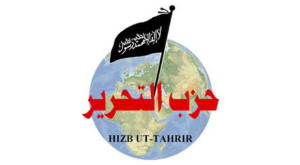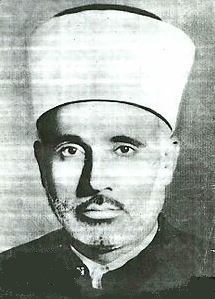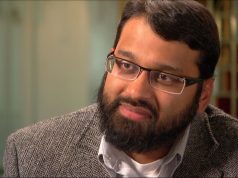Contents
Hizb ut Tahrir or HT is one of the most prominent pan Islamic political movements of the modern era. Although the organization has gained traction in a few segments, but has been largely ineffective in bringing about any notable change in the political set-up within the Muslim world or beyond. Hizb ut Tahrir or liberation party was founded by Taqi Uddin Nabhani in 1952. With the re-establishment of a lost institute the Caliphate at the heart of its manifesto, it aims to provide Muslims with a center of polity. Despite its seemingly radicals ideas, it has to be said that the movement maintains a policy of non-violence. It does however employ a culture of implied violence in its confrontational discourse.
It is not a surprise that HT found a greater foothold in non-Muslims countries by cashing in on grievances and fear in migrant Muslim communities and providing them with a sense of identity. However, with the passage of time and particularly post 9/11 they have lost their grip on youth and their membership since has been eroding.
Objective
The main objective of HT is re-establishment of caliphate.
A passionate belief exists within their ranks that only a caliphate will lift Muslims from their current abysmal state. This one point objective and simple solution to all political, social and economic problems of the world is part of their appeal.
Ideology
The ideology of HT rests on two foundations. The first one challenges all existing systems that govern our lives, criticizing and highlighting their flaws. The other part is the one that deals with the framework of alternate systems in every sphere of life (economy, judiciary, security, welfare, education and health ). Their constitution is freely available on the internet.

It is interesting to note that the first component of their ideology attracts the idealist youth. The second portion attracts people with an academic bent of mind. It has to be said that the HT’s concept and development of an alternate system is based on well researched scholarly work.
Modus Operandi
HT does not believe in active proselytization in masses. Instead it aims to recruit those who have a greater influence in the society. Its approach to bring change is top down, not bottom up. Unlike missionary movements that operate at a grass root level spreading their ideas door to door, HT tends to focus only on the middle educated class in the society. It seeks to develop a critical mass both within the echelons of power and among the intelligentsia to bring about its desired change.
Criticism
Overtime HT has received severe criticism even from Muslims, some of it regarding their theological concepts (aqeeda) and some based on their political aspirations. Over the last decade they have lost a lot of ground and continue to do so due to an inefficient policy review mechanism overlooking their operations. Reform is also needed in some aspects of their ideology.
1.One Point Agenda
The first criticism that is levelled against HT is their simplistic approach of pinning down every problem in the world to the non existence of caliphate.
In the last century, during the colonial era, when Picot -Sykes agreement had been formulated and the Ottoman empire was on its way out, Mufti Mehmood ul Hassan then the biggest scholar in subcontinent pointed out the misplaced priority among Muslims. He reminded that Quranic reconnection should be on top of the agenda for the Muslim world to progress. It should be remembered that at the time, movement for the restoration of caliphate was in full swing. The grand Mufti still opined that it is Quran, the book of Al-mighty that must be re-established in the lives of Muslims. It is the disconnect with the holy book that has pushed Muslims on a declining trajectory. Hizb ut Tahrir think otherwise.
It is true that a system that promotes fairness, equality, security, welfare and opportunity for people would be welcomed by everyone. Today’s world is being robbed of its humanitarian capital and natural resources by economic Neo-liberalism. However replacing a monolithic global capitalist culture with another system that has no room for pluralism is both reactionary and counter productive. It should be pointed out that the problem is not caliphate but HT’s imagined version of the caliphate. Furthermore their objective shifts the priority from developing the much needed human capital within Muslims that will come through education and reconnection with Quran.
2. Stretching Religious Theology
The second criticism against HT is the extrapolation of religious text in their favour.
There are no clear directives on a separate Islamic political system both in the Quran and the entire body of Hadeeth. It is not to say that Quran does not provide guiding principles for maintaining equality and fairness in the society, but the mechanisms/ institutions by which these principles will be applied are left for Muslims to design by way of consultation. Thus it can be said that Caliphate as an institution is not divinely ordained but a system that provides peace, justice and equality and uproots corruption in every form, is.
HT has always remained defensive when put in the spotlight on the religious obligation value it assigns to establishment of caliphate. Normally few hadeeth are presented in this regard. Interestingly these hadeeth say more about a muslims conduct under a ruler than about the institution of caliphate itself. Islam however emphasizes on the need for appointing the best of people as rulers, people with sound character who do not crave power but are rather humbled by the position they hold.
It should be mentioned here that in the democratic system of governance, it is not the best person for the job but rather the most popular person that gets elected. Whereas HT’s methodolgy seeks to filter out the best candidate. This intention is laudable but the practicality of their measures remains to be seen.
3. Overblown Anti Western Sentiment
In their attempt to breakaway from the modern western civilization, HT is sometimes found over zealous in crticism of western systems that are well founded and more importantly work efficiently.
To support their anti-western stance, they take the liberty of selectively using verses from the Quran and stretching their meaning. Such is the visceral hatred endemic in their polemic that it often pushes their supporters towards racism.
Their affiliate groups on Facebook for instance would pick up frequently on sickening isolated incidents in the western world to portray a stereotypical distorted image of west or people from “Darul Kufr” (home of disbelievers). They conveniently turn a blind eye on similar news events in Muslim countries.
To propagate a caricatured image of any community is disingenuous and irresponsible regardless of the target or the proponent.
4. Clandestine Operation
HT by its very nature is secretive and its members generally are not open about their association. Because of its unforthcoming nature, a shadow of suspicion remains on their true intentions as would be for any organization trying to seek power by covert means. To justify these measures their supporters will rightly point out the historical marginalization and banning orders faced by HT in many countries. Thus members of HT feel a veil of secrecy is necessary for continuing their existence.
This argument falls short when compared to the prophetic way where open hostility was faced and hardship was borne but truth was not hidden. For this reason, HT cannot perch itself on moral high ground when compared to their more open counterparts for example the Ikhwan movement.
5. Disdain towards fellow Muslims
There is deep culture of derision in members of HT about Muslims in general. Individuals that not part of their organization are meted with scorn. Words like “brain dead, ritualistic, western zombified, McDonald eating” are frequently used to as barbed insults when referring to Muslims.
This attitude stems from the adoption of Qutubism in their ideology. Qutubism fosters the concept that Muslims in the present era are going through a period of ignorance (Jahiliya) akin to pre-islamic Arabs and light of Islam has receded if not entirely diminished. This demarcation feeds the arrogance in HT members who see themselves as torch bearers in a dark world and look down on fellow Muslims as nothing but herded cattle. Furthermore the practice of “Takfeer” that is enshrined in their constitution needs to be revisited as it has brought nothing but chaos for Muslims in last 50 years.
6. Spreading Anarchism
Although HT’s literature has a huge body of scholarly work (regarding alternate systems) but that portion is largely ignored by its own young members who remain fixated with the parts that fuel their teenage rebellion. Turnover rate of HT is extremely high. Many members either grow out of it or if unfortunate become cannon fodder for more extreme organizations.
By constantly condemning all existing systems, governments and personalities, HT has become a conveyor belt for the production of alienated and anarchic youth. Their hard-line stance against democracy that deems it “haram” even to vote has put law abiding Muslims living in the west in duress.
7.Uncompromising Dichotomous Approach
HT takes no prisoners in its methodoly of brining change through an external revolution rather than internal reform. In their uncompromising approach, they forget the treaty of Hudabiya that was signed by the prophet Mohammad (PBUH) and formulated with the very men that were the fiercest enemies of Islam. In this treaty the prophet (PBUH) ceeded and compromised on many points even where he had an upper hand and a position of strength.
Verdict
Perhaps its time that HT members instead of ridiculing their rival Islamic political movement (Ikhwan) should take a leaf from their book. Ikhwan has had partial success albeit after huge sacrifices and their effort of bringing change through welfare, education at grass root level and embracing mainstream politics is bearing fruit. Ikhwan movement is popular today in Egypt, Turkey, Palestine and Pakistan.
While criticism on Hizb ut Tahrir has been highlighted but it must be said that Hizb followers are rational minded albeit with a single solution to everything. There is a huge vacuum of political activism within the Muslim community. HT fills that gap and at least tends to make many dormant individuals politically conscious.
Their approach needs to be revised and certain elements of its idealogy need to be toned down because they are entirely reactionary and a product of colonial era revolt. HT, if embraces the mainstream does not have to adopt neo-liberal policies and will find even among non-muslims like-minded individuals who seek a fairer society as they do. They also need to focus on welfare projects that will showcase their organizational ability and put them in a good light.
Self reflection by HT is incumbent after nearly 60 years of struggle without much achievement.






